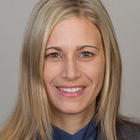Briefing Paper
Post 2015: special event on Post-2015 – stuck in the process?
Rippin, NicoleBriefing Paper (19/2013)
Bonn: German Development Institute / Deutsches Institut für Entwicklungspolitik (DIE)
On 25 September 2013, the United Nations General Assembly gathered in New York for a Special Event on the Millennium Development Goals (MDGs). The purpose of the event was: first, to review the progress made so far towards the achievement of the MDGs and, second, to chart the way for a development agenda after 2015, the target year of the current MDGs. What sounded like a very ambitious and visionary assignment resulted in a very shallow outcome document of merely three pages. This might come as a surprise, particularly against the background of the complex processes that were set in motion in preparation of the event. Yet, it is the very complexity of the processes that explains the shallowness of the document. The MDGs were developed by an expert group from the OECD, the World Bank, the International Monetary Fund and the United Nations Development Programme with the initial objective of monitoring the implementation of the commitments made in the Millennium Declaration – but ultimately captured only a fraction of them. Thus, from the very beginning, the MDGs were criticized as being a mere donor agenda and for not meeting the much broader vision of the Millennium Declaration – and even less so the sustainability paradigm as established in the Rio Declaration of 1992. In June 2012, Member States gathered at the UN Conference on Sustainable Development in Rio de Janeiro – twenty years after the 1992 Earth Summit in Rio de Janeiro. The conference adopted the resolution “The Future We Want” that generated the Sustainable Development Goals (SDGs). It is a clear response to the failures of the MDGs: initiated by developing countries – in particular Guatemala and Colombia – and with a focus on sustainability as anchored in the principles of the Earth Summit. In the follow-up, an intergovernmental process was set in motion that is to result in a concrete proposal for SDGs in 2014. At least since then, the parallel nature of the two processes – the consultations on a successor document to the MDGs, and the development of SDGs – has become obvious. The very real risk of two – in the worst case incompatible – agendas for the period post-2015 created a tension that accompanied all preparations for the event on 25 September 2013. The six work streams that were initiated by Secretary- General Ban Ki-moon and his Special Adviser on Post-2015 Development Planning, Amina Mohammed, all worked under the effect of this tension: the UN Task Team, the UN Global Compact, the High-Level Panel of eminent persons, the Sustainable Development Solutions Network and the UN Development Group. They delivered the input for the report of the Secretary-General that was to provide the platform for the discussions at the Special Event and summarized the recommendations of the work streams. But the Member States that were to discuss the document faced the dilemma that any concrete proposal for a post- 2015 agenda from their side would risk separating the two processes irrevocably. Their response was the production of a kind of “stand-by” document, the only purpose of which was to leave the door open for the linking up of the negotiations of the two processes at some point in the future.
Kontakt
Cornelia Hornschild
Koordinatorin Publikationen
E-Mail Cornelia.Hornschild@idos-research.de
Telefon +49 (0)228 94927-135
Fax +49 (0)228 94927-130
Alexandra Fante
Bibliothekarin/Open Access-Koordinatorin
E-Mail Alexandra.Fante@idos-research.de
Telefon +49 (0)228 94927-321
Fax +49 (0)228 94927-130



